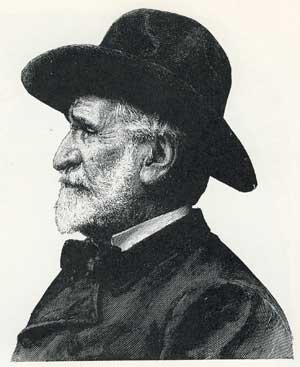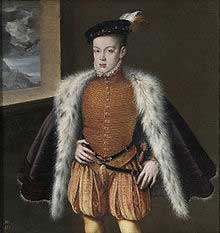Opera by Giuseppi Verdi
Based on a play by Friedrich Schiller
Metropolitan Opera, New York
Before seeing this production, I had read such a glowing review in Time magazine that I was both filled with great expectations for the performance and great skepticism about such an unequivocally supreme review. It turned out the Time guy was right on the money. This really is a wonderful production.
In recent years, the Met has been redoing a lot of its traditional productions – modernizing them – so that the staging is sleeker and less baroque. In the past, the productions for much of the traditional repertory seemed a bit kitschy. It is hard to put a finger on what caused that feeling, but, with diligence, one could go through the details of set and costume design, and staging, and account for the relative floweriness that gave that overall feeling of productions being slightly – well – laughable.
Not so for many of the new productions at the Met, which feel contemporary and trimmed. There is a real art to doing this while maintaining period settings and dress, all done very well in this production. The result is a kind of seriousness and straightforwardness of design that makes the drama and the music fit more persuasively into the whole.
As well, the Met orchestra, under James Levine’s musical direction, has become so very good that the sense of the entire production is beautiful and sleek and wonderfully fitted, everything poised and in place, but in an and expressive, not a constrained, way.
In some productions, the Met has made an effort, in recent years, to do better dramatic casting, which adds a good measure of believability and persuasiveness. The female lead in Don Carlo – Elisabeth – is a case in point. Marina Poplavskaya, a Russian soprano who sings the role, is quite amazing. She is riveting to look at, a superb actress, and has a voice of subtlety and richness. In many ways, she stole the show.
The title male lead was sung by Roberto Alagna, an established star tenor. Though not as dramatically a standout as Poplavskaya, he was indeed very good. In some ways, however, I was more taken, in voice and dramatic presence, by the baritone, Simon Keenlyside, who sang the role of Don Carlo’s friend and political compatriot, the Marquis of Posa.
This production contained a bounty of great voices, including Ferruccio Furlanetto as Philip II, Tommaso Matelli as the Priest Inquisitor and Anna Smirnova as the Princess of Eboli.
Yannick Nezet-Sequin conducted energetically and precisely. He had a bit of the antics of the actor Roberto Benigni (known best for the film Life is Beautiful) in his movements, yielding a kind of energetic warmth touched by gentle humor. Rafael Figueroa, the principal cellist, had an extended solo which he performed with apparent ease, exhibiting a precision of technique and a honeyed tone.
This production was broadcast on the HD Met Live series and apparently, for the first time, was extended to new locations abroad, expanding the audience significantly, adding to the opportunity to experience this excellent production.
– BADMan


Leave a Reply